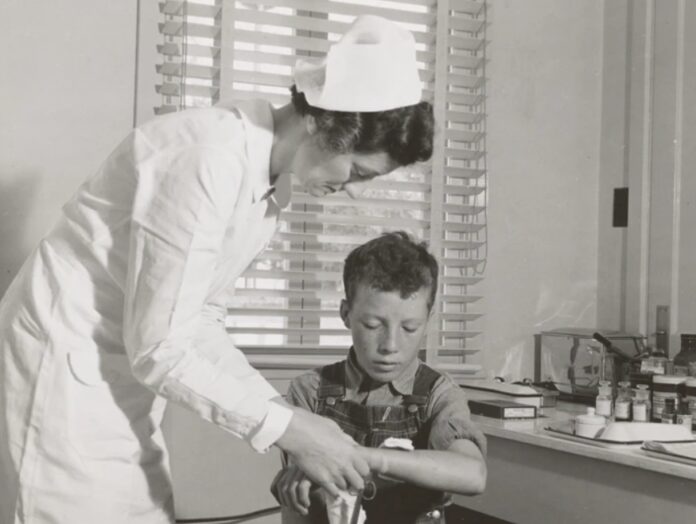
People seek to switch their careers for numerous reasons; you might need flexible working hours, better pay, you might have different career goals, or you might have discovered some new interests. Returning to school is a huge career change, and you must be sure that you are ready for the move. The nursing career path might be different from what you are currently pursuing and to begin with; you will have to overcome the phobia of switching careers. Here’s how you can change your career and be a nurse.
Do Some Research

You should first get some experience on what the job entails before you subscribe to a nursing course. As a student, you will need to be more committed since most of the time, you will either be in class or on placement. You can pursue the nursing course using the A level/Scottish method or pursue a BTEC from a local college. Upon completing your entry requirements, you will have to apply for a degree course in your preferred university. However, if you visit here, you will get to discover nursing career resources, study tips, gear guides, medical terminology, lifestyle articles, among other stuff that relates to nursing. You then have to decide which branch you wish to pursue; learning disabilities, mental health, child, or adult practice. In case you desire to pursue midwife training, you will undergo different training, although some of the course details appear similar. Making the right career move can be difficult.
Analyze the Nursing Qualifications

Nurses are professionals who are regulated by the Nursing and Midwifery Council. To be a registered nurse, you will need the necessary qualifications that allow you to be registered by the body. Check the required entry requirements with your preferred college. When choosing a nursing career path to specialize in, you should review your past roles and identify your preferred skills or activities. You will also have to determine whether your skills are addressed in the branch you wish to specialize in.
Gain Experience

You can begin the training session without experience, but in due time, you will spend most of your time in clinical practice since you will be part of a medical team. It would be best if you considered getting some nursing experience before you apply for a nursing course. This way, you will determine whether the course is meant for you or not. Try changing a patient’s clothes or medical kit, and if you realize that you are comfortable with the situation and you don’t see the practice as being gross, then nursing is the right job for you. NHS and home care facilities are open to inexperienced staff members; therefore, enroll in a program to be an assistant. You will gain some perspective and develop skills that are necessary for the career. Besides, the training experience will help reduce shock since most nursing trainees pursue the course, not knowing what lies ahead.
Know What to Expect

Nursing can be tough if you blindly pursue the course. At certain times, you might feel physically or emotionally distressed, and on other occasions, you might find yourself crying since the course is tough. However, the course can be exciting since you get to empathize with patients. Some shifts will encourage you since you will discover that you have made a difference in someone’s life while on other occasions, you might be required to work late when you are hungry. Be prepared to deal with the unexpected and brace yourself for tough times as you plan on pursuing nursing as a career.
Analyze the Career Opportunities Available for Nurses

Upon qualifying, there are tons of stuff that you can do with your certificate. Once you are a qualified nurse, you can work in various places around the world provided you meet the registration criteria. If you wish to work in the USA, you will have to sit for an NCLEX test for you to practice. Working for the NHS, along with private agencies, could attract an attractive paycheck since you will be paid on an hourly basis as a nurse specialist. You can also consider diversifying away from nursing and venture into research studies. If you happen to qualify, you will be eligible for a band six salary once you are employed.
Learn to Deal with the Job Emotions

Be prepared to deal with nagging patients who won’t give you free space. Some patients won’t appreciate your efforts while others would want you to sit with them as you deliver the sad news. Be ready for heartbreaking moments, and in such situations, learn to quench your emotions. Participate in clinical supervision, where you will get to share your experience with your colleagues, and you will gain insight into what you should have done better.
Acquire Some Personal Skills

Your job requires you to interrogate patients and join the puzzles such that you can offer better medical care. Patients will not always be kind to you; therefore, there are critical personal skills that you will have to learn or develop in due time. Learn to be a good listener, have emotional intelligence, learn to communicate, be resilient, be compassionate, and have a sense of humor. These skills will help you manage all situations; thus, you will be ready to take care of patients without being emotional.
Get Advice on How to Write a CV and Face an Interview Panel

Nurses can be poor in writing CVs, but as you apply for a job, you will need one. When you go for an interview, research the organization, the department you wish to work for, and research on the CQC report. Show the interview panel that you are enthusiastic and that you are interested in working for them.
Most people are afraid of venturing into new careers for different reasons. Being stuck in a job that doesn’t fit you can be devastating, and if nursing is your dream career, you should make an effort and pursue it immediately. However, before you decide, you must evaluate your current situation along with what to expect in the nursing career before you make a move.











